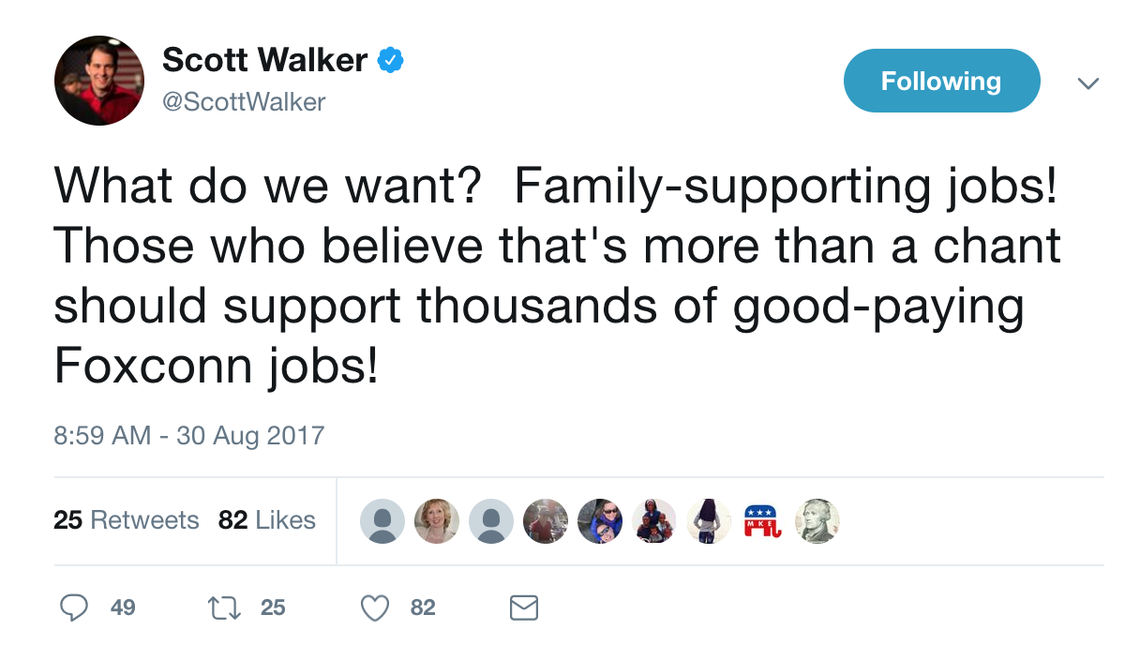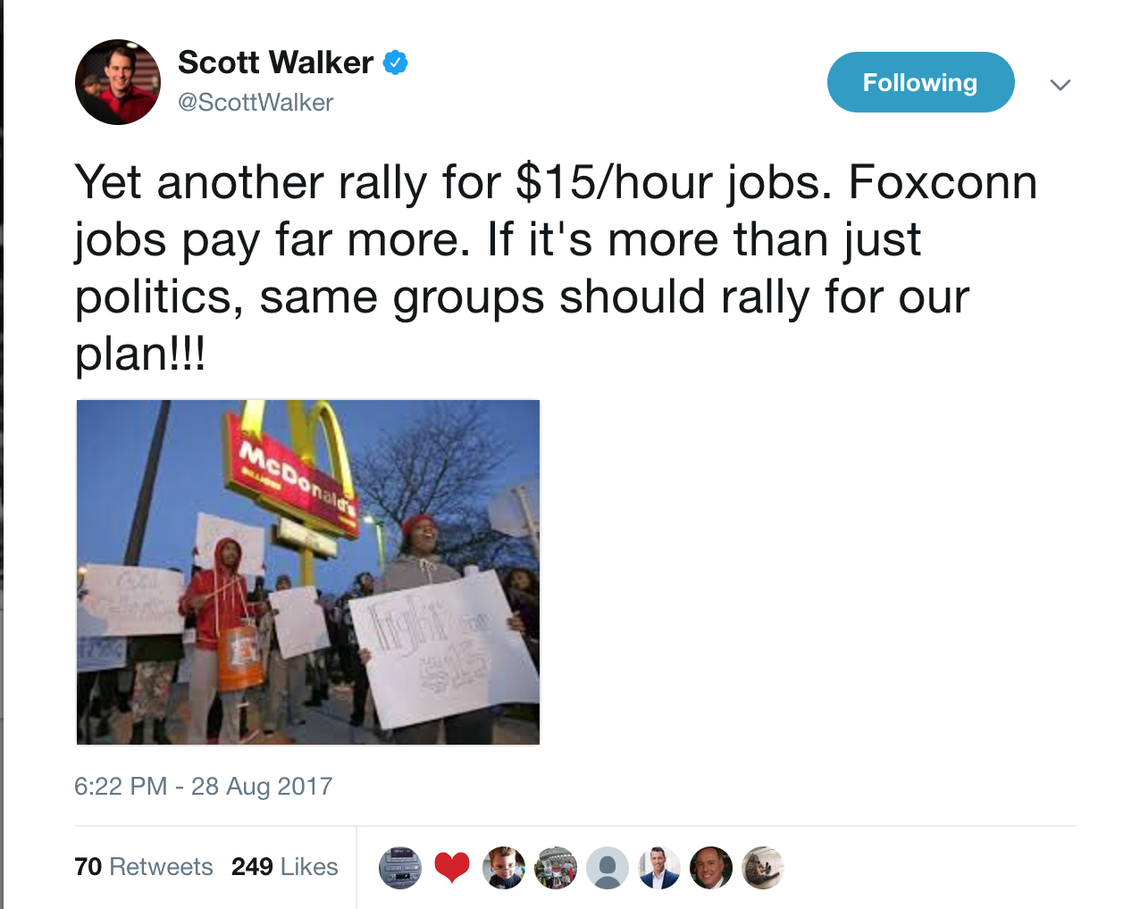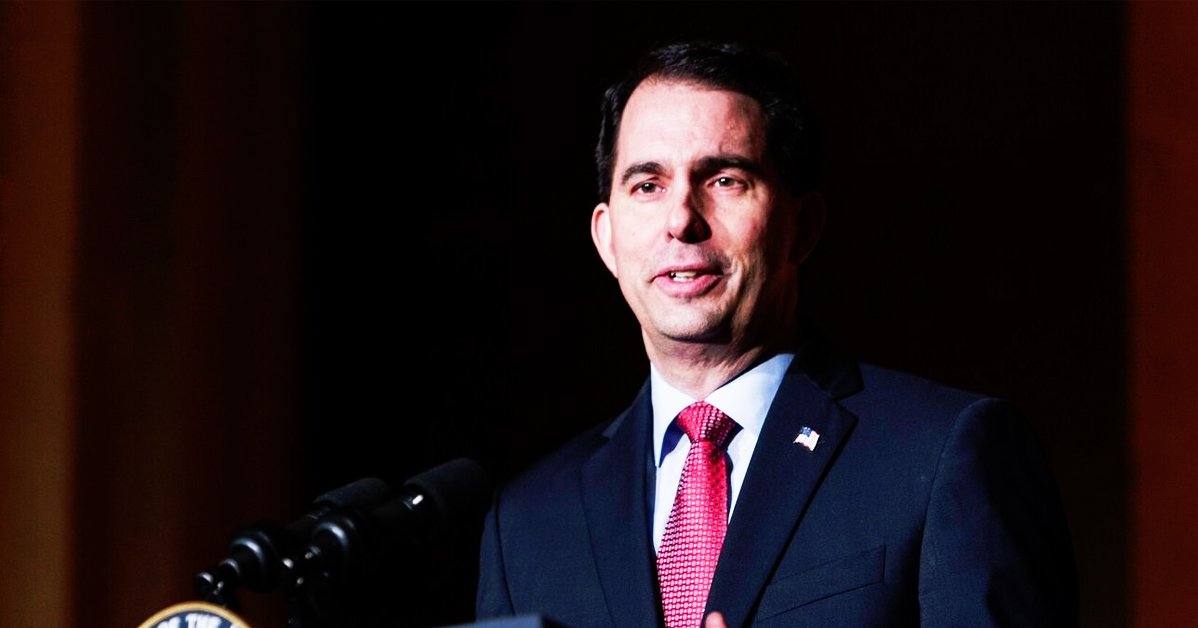Wisconsin Gov. Scott Walker is taking to Twitter to defend the state’s $3 billion deal with Foxconn Technology Group. Hailed as the “the single largest economic development project in the history of Wisconsin,” Foxconn has promised to invest $10 billion in the state and employ at least 13,000 workers (some have even estimated 22,000).


Here’s more from the Journal-Sentinel on the impact Foxconn will have on the state:
At 20 million square feet, the factory would be three times the size of the Pentagon, making it one of the largest manufacturing campuses in the nation. It would initially employ 3,000 workers making an average of $53,900 a year plus benefits and could eventually boast more than four times that.
“America does not have a single LCD plant to produce a complicated system. We are going to change that," Foxconn Chairman Terry Gou said.
Walker called the deal "the single largest economic development project in the history of Wisconsin" and said it represented the most jobs ever to be plopped into an undeveloped parcel anywhere in the nation.
"This is literally number one," Walker said.
And from the Green Bay Press-Gazette:
The announcement that Taiwan-based Foxconn Group plans to open its first U.S. factory in Wisconsin was a topic at this week's Brussels Town Board meeting.
No location has yet been announced for the factory that is expected to employ several thousand workers. The most likely area would be along the Kenosha to Milwaukee portion of Interstate 94, according to news reports.
The state is considering $3 billion in tax incentives to Foxconn along with easing of some environmental issues.
“It's a lot of money, but I think it will be good for Wisconsin,” state Rep. Joel Kitchens, R-Sturgeon Bay, told Brussels Town Board members Wednesday evening.
…
Kitchens said the Foxconn operation would be good for Wisconsin's economy.
“We're one of the worst states for losing our young people,” he said. “We do a great job of educating them and then they go off someplace else.
“I think this is an effort to change our manufacturing economy. High tech stuff that will bring young people in and keep our young people in the state.”
Previously:







